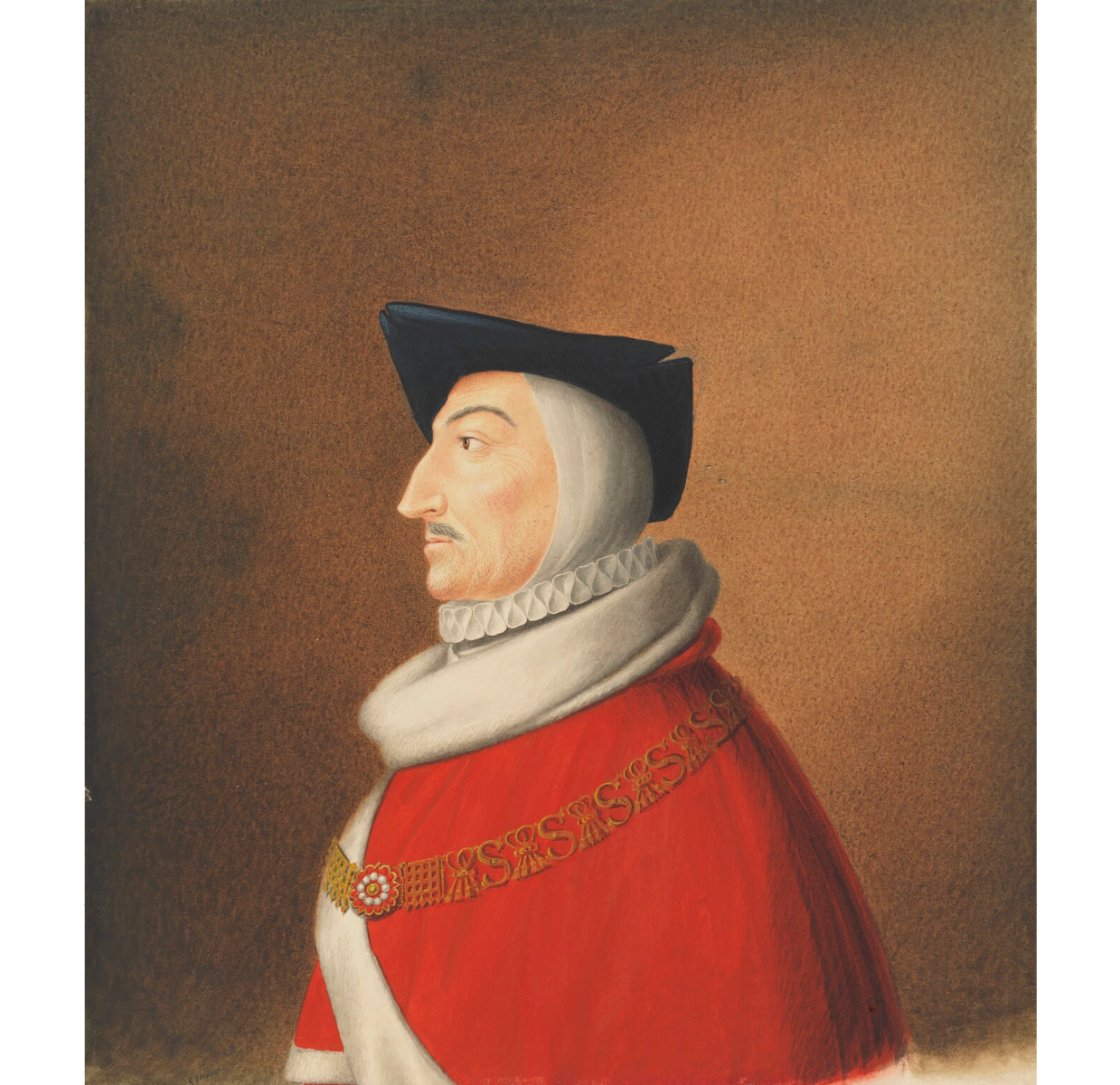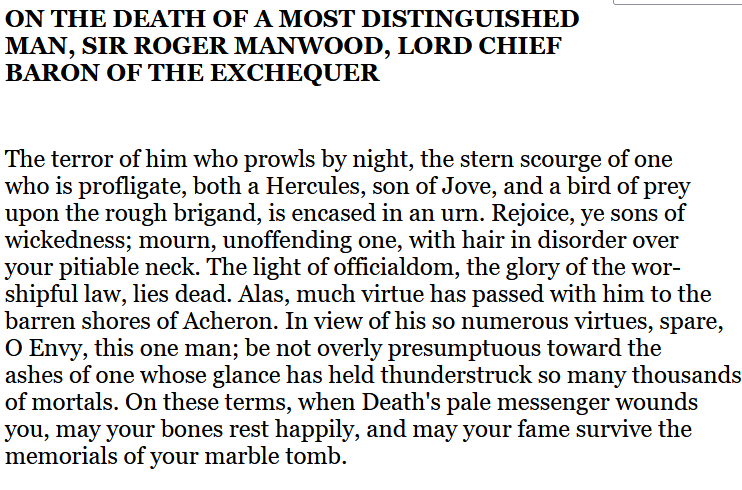Who was Sir Roger Manwood?
Sir Roger Manwood was a Kentish judge as well as a Member of Parliament (MP) for Canterbury. Manwood’s relationship to and financial support for the King’s School of Canterbury has suggested to some that he may have helped Christopher Marlowe during his time there as a scholar. The Oxford Dictionary of National Biography cites Marlowe as having received a “Scholarships worth £4 per annum, paid quarterly in arrears, were provided for ‘fifty poor boys […] endowed with minds apt for learning’.” Reginald Scot’s pronouncement that Manwood has a “ſpeciall care for the ſupporting of their right, and redreſſing of their wrongs, as neither deſpiſing their calamitie, nor yet for-getting their complaint, ſeeking all meanes for their a-mendement, and for the reformation of their diſorders, euen as a verie father to the poore,” suggests that Manwood cared deeply for others and had a reputation for charity. These details may offer insight into why Christopher Marlowe wrote a Latin elegy upon Sir Roger Manwood’s death in 1592. Here, Marlowe praises Manwood’s virtue, and wishes that Manwood’s “bones rest happily, and may your fame survive the memorials of your marble tomb.”
Manwood also is a dedicatee of Reginald Scot’s The Discouerie of Witchcraft, a text that Christopher Marlowe, as well as his contemporaries Thomas Nashe and William Shakespeare draw from across their works. Scot also hails from Kent, and served as a Member of Parliament. Scot’s epistle to Manwood underscores the latter’s sympathy to the poor and sees witchcraft as further undermining their plight. The poor are often pursued and accused of witchcraft because they are ‘simple’ and it is easier for authorities to target them as scapegoats rather than seek evidence of occultism. Scot appears to have chosen Manwood as an advocate for his project based on his reputation not only for charity, but also because he was a judge of good reputation. Scot states directly that his colleague is not one “to be car-ried awaie with the vaine perſuaſion or ſuperſtition either of man, cuſtome, time, or multitude, but mooued with the authoritie of truth onlie” (A.V.r).


